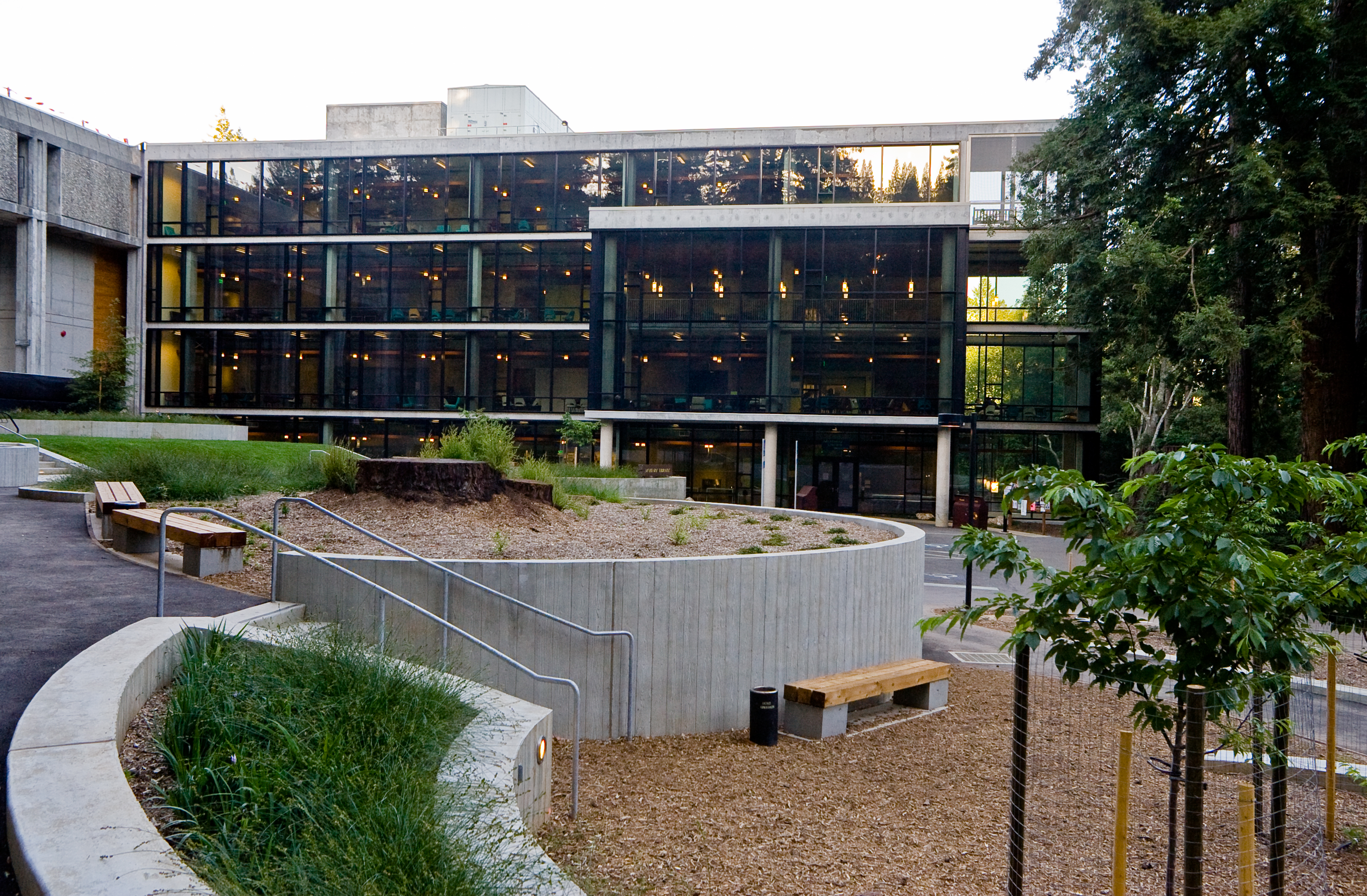Newsletter 2018
Mathematics Newsletter, Fall 2018
In This Issue:
- Colloquium/Seminar Schedule
- Preliminary Exam Dates
- Important Dates
- Colloquium Highlights
- New Mathematics Graduate Students/Faculty Profiles
- Graduate Student Coordinator - Jen Correia
- Some Mathematics Graduate Insight - Natalya Jackson
- Directed Reading Program (DRP)
- Serving Local Students: MBAMP
Colloquium/Seminar Schedules:
McHenry Room 4161
McHenry Room 4130
McHenry Room 4130
McHenry Room 4130
12-1pm McHenry Room 1240
Preliminary Exam Dates:
Check for updates!
09/28/18 Algebra 9am-2pm McHenry Room 4191
10/05/18 Analysis 9am-2pm McHenry Room 4191
10/12/18 Geometry 9am-2pm McHenry Room 4191
Important Dates: *denotes mandatory for new graduate students
09/20/18 Inclusive Classroom Practices Training
09/21/18 Inclusive Classroom Practices Training
09/22/18 Fall Quarter Begins
09/24/18 Mathematics Department Orientation,*
8:30am - 12pm: TA Training (+union rep time) - Main Stage
12pm - 1pm: Lunch for TA Training, Int'l Orientation - TBD
1pm - 2pm: Title IX Training, domestic students only - TBD
1pm - 3pm: International Grad Student Orientation - Media Theater
3pm - 4pm: Title IX Training, international students only - Media Theater
9/26/18 8:30am - 9am: Check-In Title XI Training/Coffee - Humanities Court Yard
9am - 10am: Make-up Title IX Training for new grads who did not attend the day before - Humanities Lecture Hall 206
10am - 11am: Welcome Brunch - Graduate Student Commons
11am - 1:30pm: Graduate Student Orientation - Humanities Lecture Hall 206
1:30pm - 4:30pm: Grad Orientation BBQ Social & Resource Fair - TBD
2017-2018 Colloquium Highlights
Special Colloquium Speakers
Professor Alexander Koldobsky of the University of Missouri is a leading expert in geometric functional analysis and convex geometric analysis, and known for his contributions to the solution of the Busemann-Petty problem. His talk was titled "Fourier analysis in geometric topography."
Rafe Mazzeo is a Professor at Stanford and the Director of the IAS/Park City Mathematics Institute. He is a leading expert in microlocal analysis, and scattering and spectral theory in a geometric context. He spoke on "The Extended Bogomolny and Kapustin-Witten Equations", building the foundations of a gauge-theoretic approach to knot invariants.
Professor Svetlana Jitomirskaya of UC Irvine is a leading expert in Mathematics Physics, in particular the spectral theory of operators with almost periodic potential. She is best known for her solution (jointly with A. Avila) of the `Ten Martini Problem', which identifies the spectrum of the almost Mathieu operator as Cantor-type set. She talked about "Lyapunov exponents, small denominators, arithmetic spectral transitions, and universal hierarchical structure of quasiperiodic eigenfunctions."
New Mathematics Faculty
Welcome to the UCSC Mathematics Department,
we are so happy you are here!
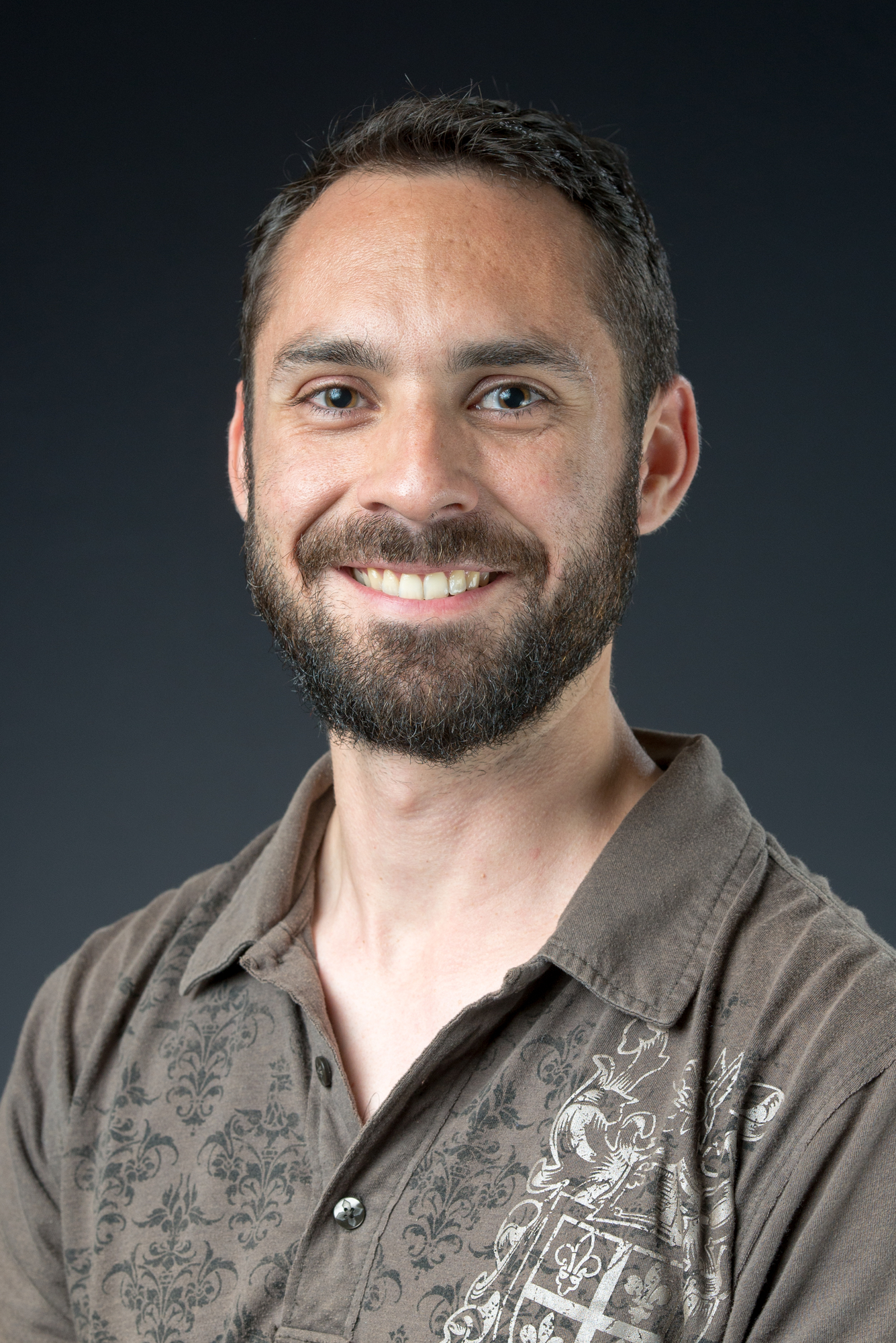 Pedro Morales - LPSOE
Pedro Morales - LPSOE
I am originally from Guatemala, a tiny country in Central America, where I obtained a degree in applied mathematics and a degree in electronics engineering from Universidad de San Carlos de Guatemala.
I got my PhD from Baylor University in mathematical physics, specifically working with zeta functions. I am deeply interested in many areas of mathematics, but specifically in spectral zeta functions and their applications into number theory, quantum field theories, and related areas.
My interest in math started while in high school when I became part of the guatemalan math national team. I discovered that math was more than calculations and numbers. It was rather a way to describe and create. I like to solve problems, to find patterns, and to describe phenomena using math.
I also like technology, programming, music, innovation, and any other ways to express creativity.
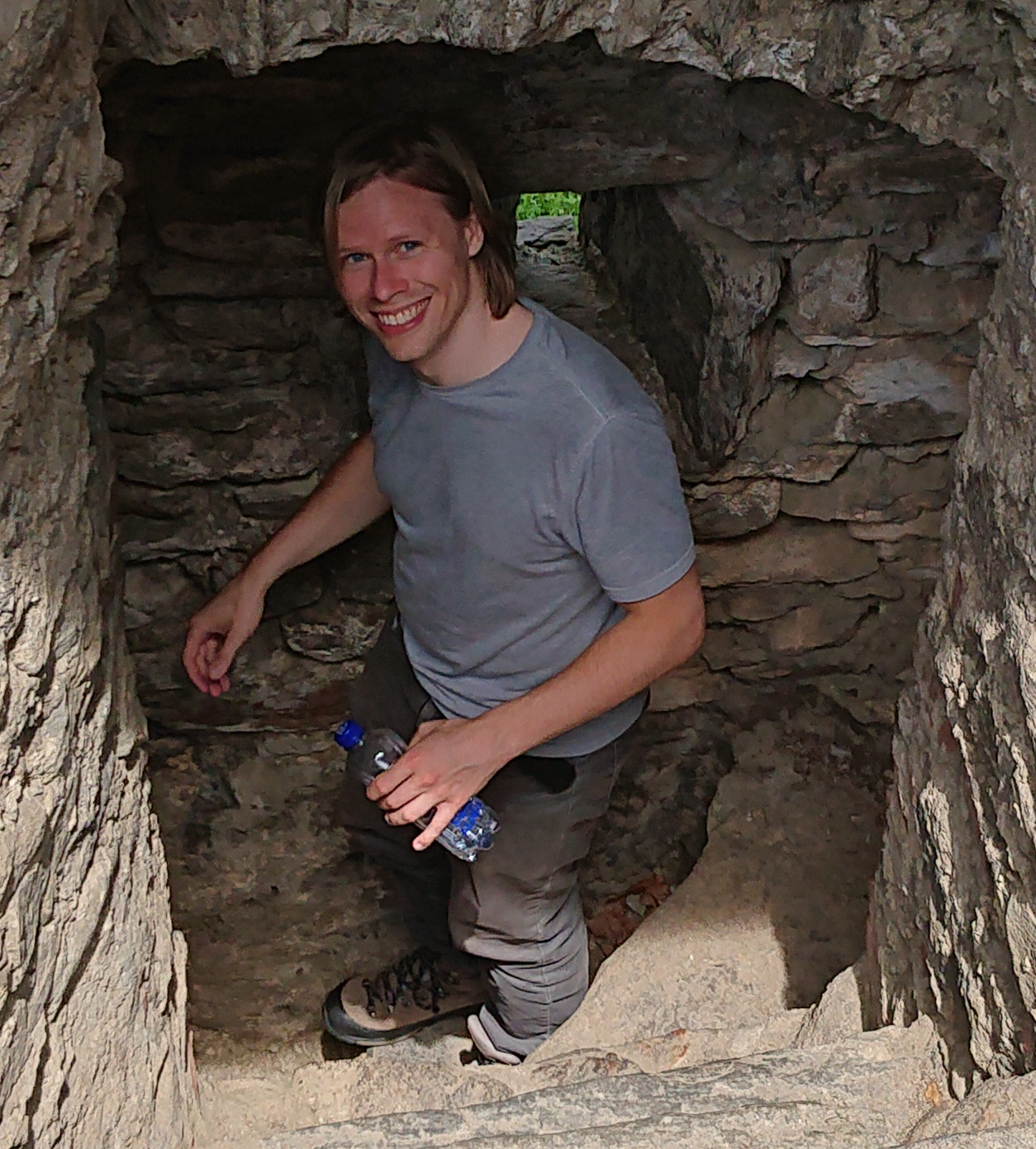 Beren Sanders - Assistant Professor
Beren Sanders - Assistant Professor
Born overseas to Australian parents, Beren spent his childhood following his family all over the world (he has lived in eight countries... no joke). Fortunately, he survived the culture shock of returning to Australia as a teenager and, after undergraduate studies in Sydney, he moved to California for graduate school, receiving his PhD from UCLA in 2014.
Since then he has been living in Europe with postdoctoral positions in Denmark (at the University of Copenhagen) and in Switzerland (at EPFL). He is very much looking forward to joining the mathematics faculty at UC Santa Cruz.
Beren's research lies primarily in the study of triangulated categories and stable homotopy theories, especially via the methods of tensor triangular geometry. This is an interdisciplinary subject with close connections to algebraic geometry, algebraic topology, and the representation theory of groups and associative algebras. Besides mathematics, Beren loves literature, music, and the outdoors, and is a strong supporter of efforts to translate Shakespeare back into the original Klingon. He tries not to take himself too seriously.
Johan Steen - Postdoctoral Scholar working with Beren Sanders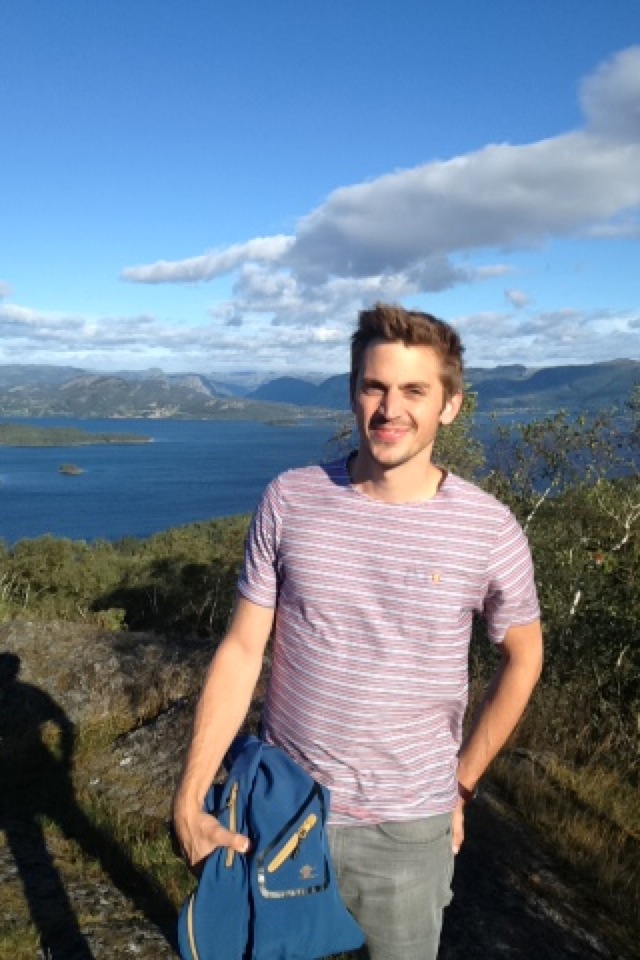
Hey, my name is Johan. I grew up in the middle of Norway, far enough north to ensure pretty cold and dark winters. I finished my PhD at NTNU, Trondheim in 2014 and went on to a postdoctoral position in the same group. I am very excited to come to Santa Cruz for my next postdoc!
My research is within homological algebra. On an abstract level, triangulated categories are never far away and, more specifically, I find myself working with the representation theory of algebras.
When I'm not thinking about mathematics, I enjoy hiking and all kinds of sports.
Graduate Student Coordinator - Jen Correia

Jen Correia
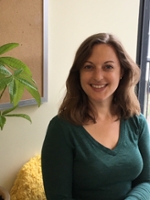 Jen Correia is the Graduate Advisor and Program Coordinator for the Mathematics Department. She is a Student Affairs professional of seven years, previously working with first year students as an Area Coordinator at Trinity College in Hartford, Connecticut.
Jen Correia is the Graduate Advisor and Program Coordinator for the Mathematics Department. She is a Student Affairs professional of seven years, previously working with first year students as an Area Coordinator at Trinity College in Hartford, Connecticut.
Jen is a native New Yorker who decided to give the west coast a try; she moved across the country with her husband, baby (now toddler!), and two cats in tow at the end of Summer 2017. She joined UCSC and the Department in Fall 2017.
Jen is excited to be part of the UCSC community and hopes to bring a creative spark to her role. Feel free to stop by McHenry 4111E to say "hello"!
Some Mathematics Graduate Insight
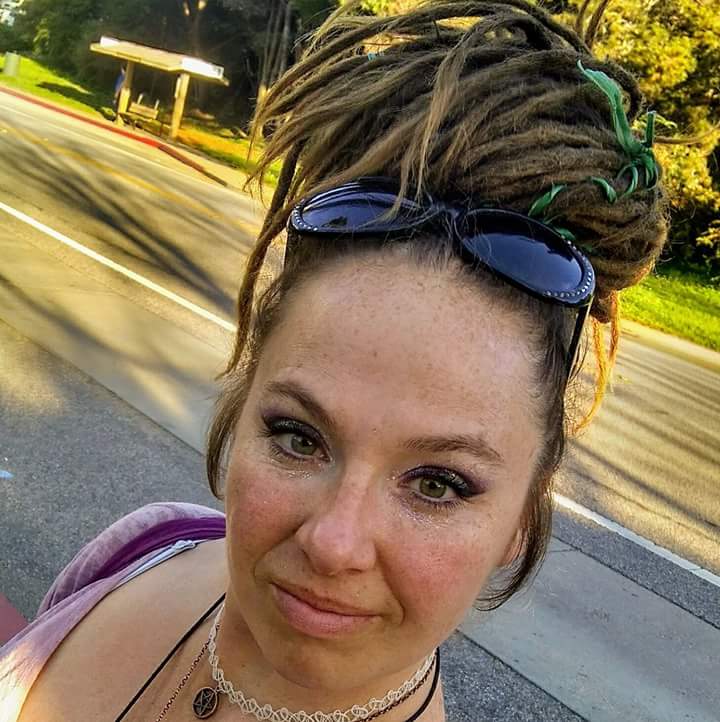
Natalya Jackson
Being a single parent in graduate school is a delicate exercise in time management, self-discipline, and self-care. I sometimes joke that I'm getting a PhD in my spare time! Balancing research and teaching duties with family life complicates scheduling, but I wouldn't trade it for anything. I have a passion for teaching -- my philosophy is that enthusiasm is contagious -- and I hope to continue both teaching and research after I graduate.
I spent the summer after my 3rd year working in a small group of grad students studying topics my advisor suggested, which were not covered in the usual courses. This was an incredibly valuable experience which allowed me to learn much more than I could have on my own in the same time frame.
Now that I'm starting my 5th year, it's great to finally have an answer to that pesky question, "What's your research about?" It took four years to be able to say, "I'm working on a Godement-Jacquet style alternative construction of the Local Langlands Correspondence for split tori over nonarchimedean local fields." I've found that people outside mathematics are often surprised to learn how long it can take to develop the background required to do research in math.
If I were to offer one suggestion for incoming grad students, it would be to not disregard information from classes which are outside your current interest. I always thought I'd do research in algebra, so I glossed over analysis with the minimal concern required to pass preliminary exams. Now I'm doing research in an area of mathematics which combines algebraic number theory, Fourier analysis, representation theory, functional analysis, algebraic groups, and much more. It turns out that things I thought I'd never use again became extremely important to me!
New Graduate Students Fall 2018
- Alexander, Malachi
- Caddel, T. Brynn
- George, Paul
- Kou, Tzu-Mo
- Lemann, Ezekiel
- Liu, Jianqi
- Mather, Derek
- McHugh, John
- Owens, Brandon
- Pelias, John
- Pugh, Ryan
- Rubinstein, David
- Sanchez, Alonzo
- Stubbs, Kimberly
- Tran, Trang
- Yan, Shengpei
- Yu, Herman
- Zhang, Yufei
The Directed Reading Program
Organizer: Andrew Lee
The Directed Reading Program (DRP) at UCSC pairs experienced graduate students with motivated undergraduates to meet weekly and discuss a topic of their choice. This is a valuable opportunity for undergraduate students to learn material not offered in classes, and for graduate students to contribute their expertise and gain experience in outreach and mentoring.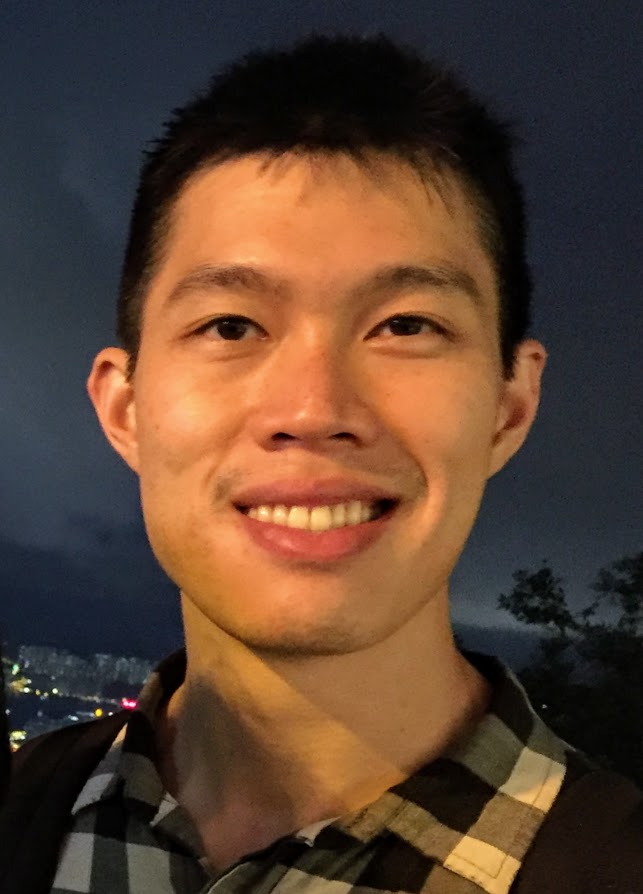
At the end of the quarter, undergraduate students give a 15-20 minute talk about their work. We expect graduate students to help their mentees prepare for this talk - communicating knowledge is just as important as acquiring it!
In Winter 2018 we had 6 undergraduates and in Spring 2018, the program had 11 undergraduates working with graduate students on a variety of topics including machine learning, fluids, Lie groups, and algebraic topology. "The DRP has been a very fulfilling experience for me," said undergraduate particpant Sandra Nair. "It makes mathematics a joyful adventure!" Future plans for the program include securing further funding from external sources to broaden participation, as well as connecting with other DRPs in the Bay Area to provide more speaking opportunities for undergraduate math majors. For more information see https://people.ucsc.edu/~
Talks from previous quarters: Winter 2018 Spring 2018
Mathematics Awards Spring 2018
Congratulations to the recipients of our Mathematics Awards in 2018! They each received $1,000 awards in recognition of their accomplishments in the Mathematics major—Pure Mathematics concentration. We are honored to recognize their hard work and to be able to present them with an award.
Faculty selected Derek Mather as the recipient of the Stephen M. Palais Memorial Undergraduate Research Award in Mathematics and Molecular, Cell, and Developmental Biology. The family of Stephen Palais, a former student at UCSC, established the award after he tragically passed away in 2002. Stephen loved his years at UCSC, and was particularly fond of the science and mathematics courses and the faculty. The family chose to honor his memory with this endowment. Faculty chose Derek for the Palais award in recognition of his stellar academic performance and hard work.
Alyssa Soderberg and Timofey Peshin were selected by Mathematics faculty as recipients of this year's J.W.T. Youngs Memorial Undergraduate Award in Mathematics. The family and friends of Professor Youngs, a former professor at UCSC, established the award after he tragically passed away in 1970. Professor Youngs was a member of the Mathematics Department and a Fellow of Crown College. The endowment was established to honor his memory by supporting two annual prizes, one for an outstanding student of mathematics enrolled in Cowell College, and one for an outstanding student of mathematics enrolled anywhere on the Santa Cruz campus. The Youngs award is administered by the Mathematics Department.
We wish them all success in their future endeavors!
Short Bio from Derek Mather
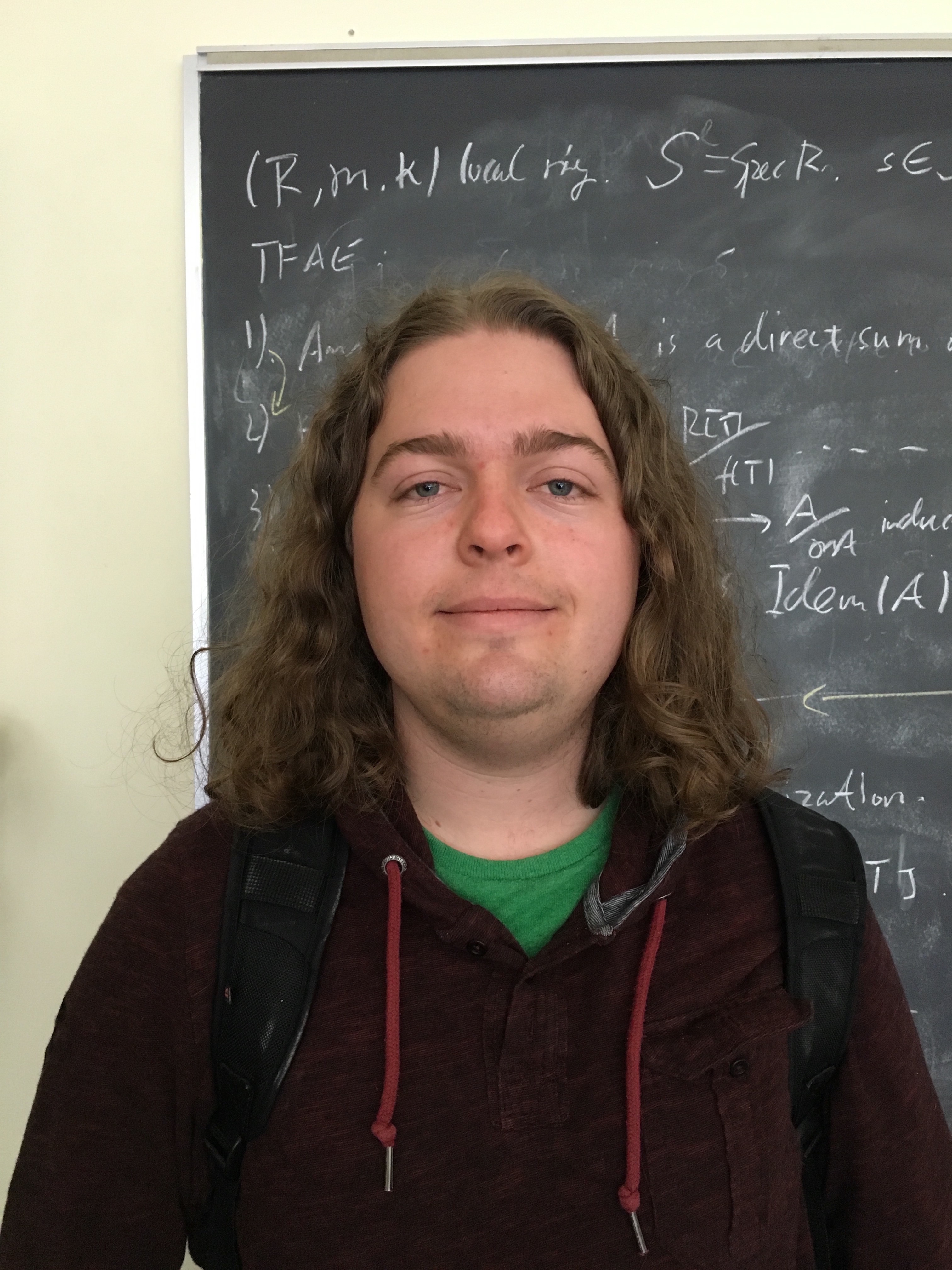
My name is Derek Mather and I am a Pure Mathematics major at UCSC. I was born and raised in Santa Cruz, so going to UCSC was a very natural choice. Not to mention that my grandfather, Richard Mather, was a founding professor at UCSC when it was just a few trailers. With the exception of taking a few Cabrillo classes in high school, I was homeschooled all of K-12. Most of my time as a homeschool student was spent playing music and tennis. I first learned about Mathematics from Khan Academy and that sparked my interest in Mathematics and Science. After graduating from high school, I spent a few years at Cabrillo and then applied to UCSC as an Astrophysics major. I discovered that it was the mathematical aspects of Astrophysics that most interested me, so I switched majors upon transferring to UCSC. I really enjoyed my classes and professors at UCSC. I especially appreciated the camaraderie of my classmates. My brother went to UC Berkeley, and I heard about what a competitive environment it is there in the undergraduate program. There was none of that at UCSC and the small class sizes made it easy to get to know my professors and interact with classmates. I am starting the Master's program in the fall, and my goal is to continue on for a PhD.
Short Bio from Alyssa Soderberg

Hi, my name is Alyssa Soderberg and I am about to graduate with my undergraduate degree in Pure Mathematics with a minor in Theater Arts, Dance. I fell in love with mathematics during my first year here at UCSC, when I was introduced to calculus. I have always been an artist and a learning disability student, so I never imagined that I would find myself so passionate about this field of study. As I continued to take more classes, I fell deeply for the challenge, beauty, and delicate intricacy of theory.
I am also a choreographer, performer, visual artist, dance teacher, and graphic designer. I hope to integrate and research pure mathematics through choreography in the future. I may go on to graduate studies, but I hope to pursue my career as a performer and choreographer first. After I graduate, I am going to Paris with nine of my dance peers to attend a performance conference and choreography exchange at the Centre National de la Danse.
I feel honored to receive this award, and want to give special thanks to Professor Richard Mitchell, Junecue Suh, Bob Hingten, and my fellow women in the department who have supported me through my undergrad education.
Short Bio from Timofey Peshin
 I’m a Pure Mathematics and Computer Science major at UCSC. When I had just arrived at UCSC, I knew I would pursue the Computer Science major, but I also wanted to double-major in either Computer Engineering or Pure Mathematics. The decision became trivial once I took my first undergraduate math courses—Group Theory with Prof. Junecue Suh and Real Analysis with Prof. Francois Monard—in the winter quarter of my freshman year. During that quarter, I spent most of my free time either going through problems in Dummit & Foote or reading through Strichartz’s The Way of Analysis. I regularly use the ways of thinking and problem-solving that I discovered during those courses. Although I had always enjoyed math, these courses and professors created in me a new appreciation for it. Since then, I have only had great experiences with my math classes. At the end of every quarter, I could come up with a long list of problems that I could understand and solve that I could not have approached before. After graduation, I would like to go to a graduate program in mathematics.
I’m a Pure Mathematics and Computer Science major at UCSC. When I had just arrived at UCSC, I knew I would pursue the Computer Science major, but I also wanted to double-major in either Computer Engineering or Pure Mathematics. The decision became trivial once I took my first undergraduate math courses—Group Theory with Prof. Junecue Suh and Real Analysis with Prof. Francois Monard—in the winter quarter of my freshman year. During that quarter, I spent most of my free time either going through problems in Dummit & Foote or reading through Strichartz’s The Way of Analysis. I regularly use the ways of thinking and problem-solving that I discovered during those courses. Although I had always enjoyed math, these courses and professors created in me a new appreciation for it. Since then, I have only had great experiences with my math classes. At the end of every quarter, I could come up with a long list of problems that I could understand and solve that I could not have approached before. After graduation, I would like to go to a graduate program in mathematics.
Serving Middle and High School Students
Monterey Bay Area Mathematics Project - MBAMP
The Monterey Bay Area Mathematics Project (MBAMP) exists to increase the academic achievement of students in mathematics (grades K – 12) via professional development programs (PD) for teachers.
These PD programs enhance the content knowledge and teaching skills of classroom teachers.
As overall student achievement rises, MBAMP programs will reduce achievement gaps in the mathematics performance of student populations.
Core to the improvement efforts sought by MBAMP programs are the partnerships developed between MBAMP and local school districts, the Santa Cruz, San Benito, Monterey and Santa Clara County Offices of Education (COEs), the mathematics faculty of UCSC and other organizations concerned about mathematics education.
MBAMP is dedicated to providing students a rich, rigorous, and coherent mathematics curriculum taught by competent and confident mathematics teachers who foster all students’ proficiency in mathematics—achieving equity in quality.
All teachers and students become competent mathematical thinkers as they investigate, conjecture, and justify in their pursuit of mathematical knowledge.
